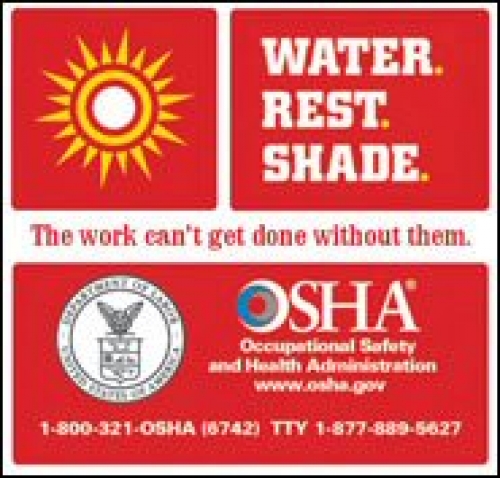 William M. Sparks 1945 - 2023
William M. Sparks 1945 - 2023
My father, William (Bill) Sparks, passed away sadly but comfortably Sunday morning, surrounded by his family. He was a kind and loving man with a heart of gold. There are so many who loved him and will feel this loss – in the business world and far beyond. He would say thank you to all of his small-business customer for their support, and he would wish everyone peace and happiness. I have run the William M. Sparks Insurance Agency for many years now, and I will continue to run it just as my father did and as he would want me to do. On behalf of my family, I thank you all for your kind words, well wishes and support at this time. --- Danielle Sparks
As a responsible employer, your first concern is keeping your employees healthy and injury-free. During flu season, it is particularly important to take precautions in the workplace to prevent the spread of the flu virus. But how much do you really know about the Flu? Why not test your Flu IQ...
It is that time once again -- to “fall back” -- turning back our clocks to regain that hour we lost in the spring. As we end Daylight Savings Time and return to standard time, it's the perfect time to change our smoke alarm batteries. We are all about safety here at the Sparks Insurance Agency, so we urge you to get into the habit of changing smoke alarm batteries either at the end or the beginning of Daylight Savings Time to keep your family safe and to avoid homeowners insurance claims by protecting your home from fire and smoke damage.
The value of a reliable smoke alarms in our homes is indisputable. However, having a smoke alarm isn't enough. A good fire safety plan requires that the smoke alarms actually are reliably working. Adopting the habit of doing a quick check of your smoke alarms each month will ensure that they are working properly, and changing the batteries at least once a year will ensure that their batteries remain fresh and strong.
If Neglected, Smoke Alarms Might Stop Working
Smoke alarms can stop working for several reasons. Sometimes it is because they have outlived their usefulness, especially if they are more than 10 years old. More commonly, however, these alarms fail to do their job of alerting you to the danger of fire and smoke because their battery is dead or missing or because the smoke alarm has been disconnected. In fact, the National Fire Protection Association (NFPA) warns that almost two-thirds of home fire deaths in 2005-2009 resulted from fires in homes with no smoke alarms or non-working smoke alarms.
What if Your Smoke Alarm Fails to Remind You
Perhaps you are thinking you could just wait until the smoke alarm beeping alerts you that the batteries need to be replaced. That's a bad idea for many reasons such as…
- If you are not at home during time when the beeping alert begins until your smoke alarm batteries go totally dead, you might not be aware that they are not working. This leaves your family and your home unprotected against fire.
- If you don't have replacement smoke alarm batteries ready when the alert occurs, you might be tempted to stop the beeping by removing the batteries or disconnecting your smoke alarm. Of course, this increases your risk of not being alerted in case of a fire until you get your smoke alarm working again.
When Replacing Smoke Alarm Batteries...
- Avoid using rechargeable batteries in your smoke alarm. Smoke alarm manufacturers advise against them. Install the correct type of replacement battery -- the one recommended in the manual or label on your smoke alarm; and be sure to follow all directions.
- If your smoke alarm is giving you frequent nuisance alarms, then it’s time to replace the entire smoke alarm unit. Don’t be tempted to just disconnect the battery to stop the nuisance alarms.
- Almost all smoke alarms batteries should be replaced each year, including those in hard-wired smoke alarms with battery backup. This applies to all smoke alarms except those that are hard-wired and do not include a battery backup or smoke alarms that have a built-in 10-year battery that cannot be replaced. In the latter case, you would replace the complete smoke alarm every 10 years.
- Remember to change the batteries in your carbon monoxide alarm at the same time that you change your smoke alarm batteries.
- Take the opportunity to clean your smoke alarm at the time that you change the batteries each year.
- More About Home Smoke Alarms from the NFPA (Video)
- Smoke Alarms: Installation and Maintenance Tips
- Smoke Alarm Types: Ionization vs. Photoelectric
Halloween can be a holiday full of festivities, fun and costumes or it can be the cause of accidents or worse. If you follow a few tips to ensure safety and protect your home from liability, you can prevent the risk of a homeowners insurance claim spoiling the fun.
Will you be hosting a Halloween party or welcoming trick-or-treaters to your door? Either way, opening your property to the public can leave you vulnerable to insurance claims and lawsuits.
The following 10 Tips will assure Halloween home safety...
- Create a Clear Path –Prevent visitors after dark don’t stumble and injure themselves by keeping the area around your home unobstructed. Especially at Halloween, clear your lawn and walkways of toys, lawn ornaments, gardening equipment, etc. to help avoid a liability.
- Keep the Lights On – Be sure that trick-or-treaters and other visitors are able to see clearly after dark to a fall on your property. You will not only help avoid a liability claim, but you’ll deter burglars who are always less inclined to approach a well-lit home.
- Confine Your Pets for Protection – Dogs and cats could jump on or even bite unfamiliar visitors -- especially those in costume. For the safety of your guests as well as your pets, keep dogs and cats away from the front porch or open areas.
- Be Smart About Pumpkin Carving – Leave the pumpkin-carving to the adults this Halloween and encourage them to use a special pumpkin cutter for extra safety. Allow children to help with the design before carving.
- Jack-o-Lantern Safety – Jack-o-Lanterns left unattended can easily be tipped over by trick-or-treaters or pets. If they are lit by candles, that could have a disastrous consequence. Avoid fire damage claims by using a battery-powered light in your pumpkin.
- Avoid Open Flames – Just as with Jack-o-Lanterns, setting the spooky Halloween mood with candles and luminaries that can easily be overturned, could result in homeowners insurance claims for fire damage. Consider light sticks or battery-powered lighting instead.
- Think Before You Serve – Remember that you are responsible for the safety of guests who will visit your home this Halloween. Trick-or-treaters should be given only commercially-packaged treats. Likewise, be sure to protect those who will be driving later by serving non-alcoholic beverages to your older party guests; and, of course, avoid serving alcohol to anyone who is under-age. Thinking of the mood at your party by using dry ice in a punchbowl, be sure to keep the chips out since they can cause severe injury if ingested.
- Assure Home Security – Will you be away from home during Halloween? Remember to set your security alarm system before you depart. Typically, Halloween season is a prime time for mischief and burglaries. Don't forget to also activate motion-sensitive lights, and alert your neighbors if you will not be at home.
- Test Your Home Smoke Alarms – While you are testing your home security system, don’t forget to test your smoke alarms well in advance of the Halloween celebrations to minimize the chance of having a claim for fire damage.
- Check Your Homeowners Insurance – Take a moment to speak with your insurance agent to be sure you will be fully protected for whatever plans you have for the Halloween Holiday. The time to find out that your coverage is incomplete is NOT after you have a claim.
Can you believe it? The weatherman is forecasting snow. It seems like just yesterday that we had that heat wave. Now that snow, ice and single-digit temperatures are closing in on us, it’s important to review these common sense rules for winter driving and safety guidelines for dealing with winter road emergencies.
- If you didn't get around to preparing for winter before wet, cold or icy weather struck by performing a complete check-up of your vehicle, then there is no time like the present. Your auto tech will tell you that winter conditions present the greatest challenge to your vehicle’s operating efficiency.
- Before you start your car, move it out into the open to let it warm up, This way, you avoid exhaust build-up in your garage.
- Put a Winter Driving Kit in your vehicle and keep it stocked with: ice scraper, paper towels, a bag of sand, salt or kitty litter, snow brush, shovel, booster cables, warning flares, a flash light, window-washing fluid, a blanket, gloves and a spare cellular phone with extra batteries. You’ll have the peace of mind that comes from knowing you’re prepared for an emergency.
- Frequently check your tires for proper inflation. If your vehicle owner’s manual does not specify, then ask your automotive technician about the proper inflation level.
- Make it a practice to keep your fuel tank at least half-full. This way, you will prevent gas-line freeze and you won’t likely run out of fuel in an emergency.
- Don't drive in bad weather if you can avoid it; but if you must drive, then try to be well rested and wait until snow plows and sand trucks have cleared the roads.
- When driving on wet, snowy or icy roads, don't use cruise control or overdrive. Both will diminish your full vehicle control in possible slippery conditions.
- Make sure you have the best visibility possible when driving in winter weather. Be sure that your seat and mirrors are properly adjusted, wear sunglasses to reduce glare and don't forget to buckle up.
- Don’t use your parking brake in cold or inclement weather, if at all possible.
- If you experience skidding on slippery roads, always take your foot off the gas pedal and steer in the direction you want to go to recover from the skid.
The key to safe winter driving is to plan ahead, know your vehicle and adapt to the weather and road conditions
Heat can be a real danger for workers during the summer, especially those who work outdoors. The extreme heat in our area this summer has even prompted U.S. Labor Secretary, Hilda L. Solis, to issue a warning as a record heat wave swept much of the nation last month.
Temperatures in our area are still in the 90's. So, for your employees – especially those who work outdoors -- summer heat is not only uncomfortable, it can be down right dangerous.
Recognizing the immediate threat, OSHA is currently promoting a national outreach initiative to educate workers and employers about the hazards of working outdoors in the heat and steps needed to recognize and prevent heat illnesses. The simple message: "water, rest, and shade." Their website includes segments with resources, educational material and much more for you to use to make your workforce aware of the dangers and how to cope with the extreme heat this summer.
As an employer, you want to protect your employees against possible injury and danger; so you will want to educate them to avoid heat-related illness. OSHA reports that, each year, thousands of outdoor workers encounter heat illness as they do their jobs, and it often manifests as heat exhaustion. Heat Stroke can quick follow heat exhaustion if it is not handled promptly. Heat stroke was responsible for the death of 30workers last year.
OSHA boss, David Michaels warns workers that "Drinking water often, taking breaks, and limiting time in the heat are simple, effective ways to prevent heat illness."
In addition to providing a full complement of resources and educational materials on heat illness, and to assist employers and employees, OSHA has partnered with the National Oceanic and Atmospheric Administration (NOAA) to provide weather service alerts. These alerts will include worker safety precautions and will be available when heat alerts are issued across the U.S. You will also find pertinent worker safety information on NOAA’s Heat Watch Web page at http://www.noaawatch.gov/themes/heat.php
As a responsible employer, you want to be sure your employees are protected in your workplace and that, should illness or injury occur, you have the proper insurance coverage to assist with any claims. In the face of threats to your employees’ health and safety such as the environmental danger from extreme heat, we here at the William Sparks Insurance Agency suggest that you take a moment to review your company’s insurance coverage to be prepared before you need it. We welcome your questions and would be glad to help you review your insurance policy at your convenience.
Tag Cloud

|
|
 |








